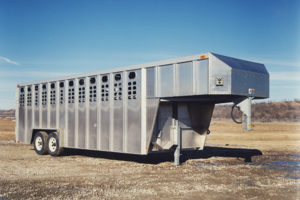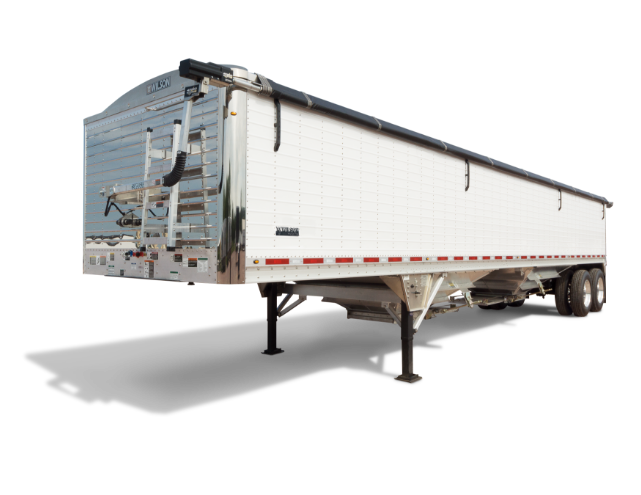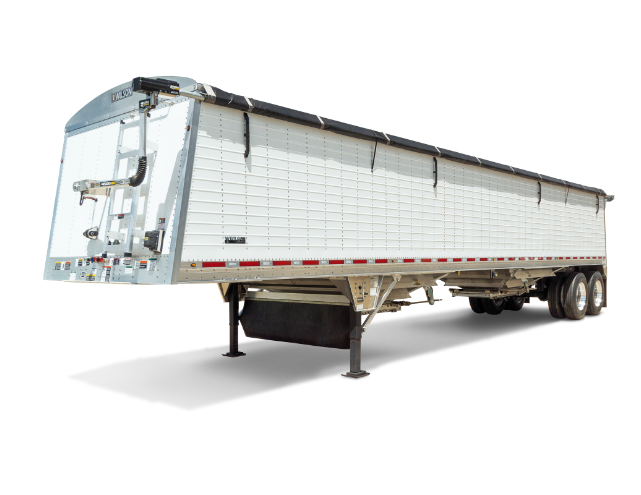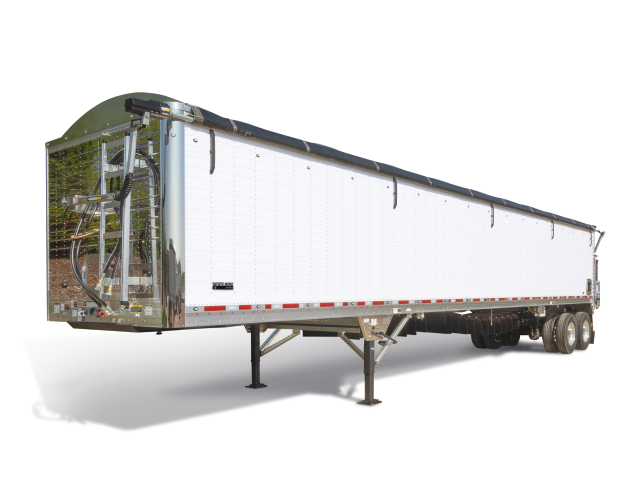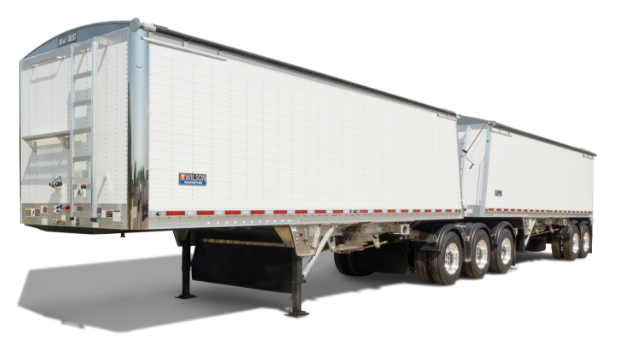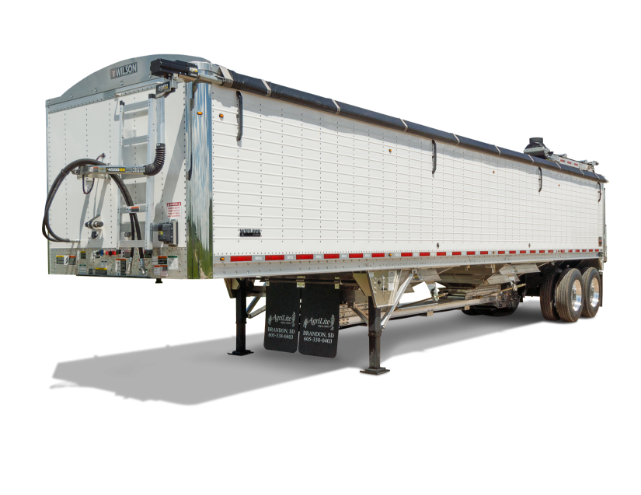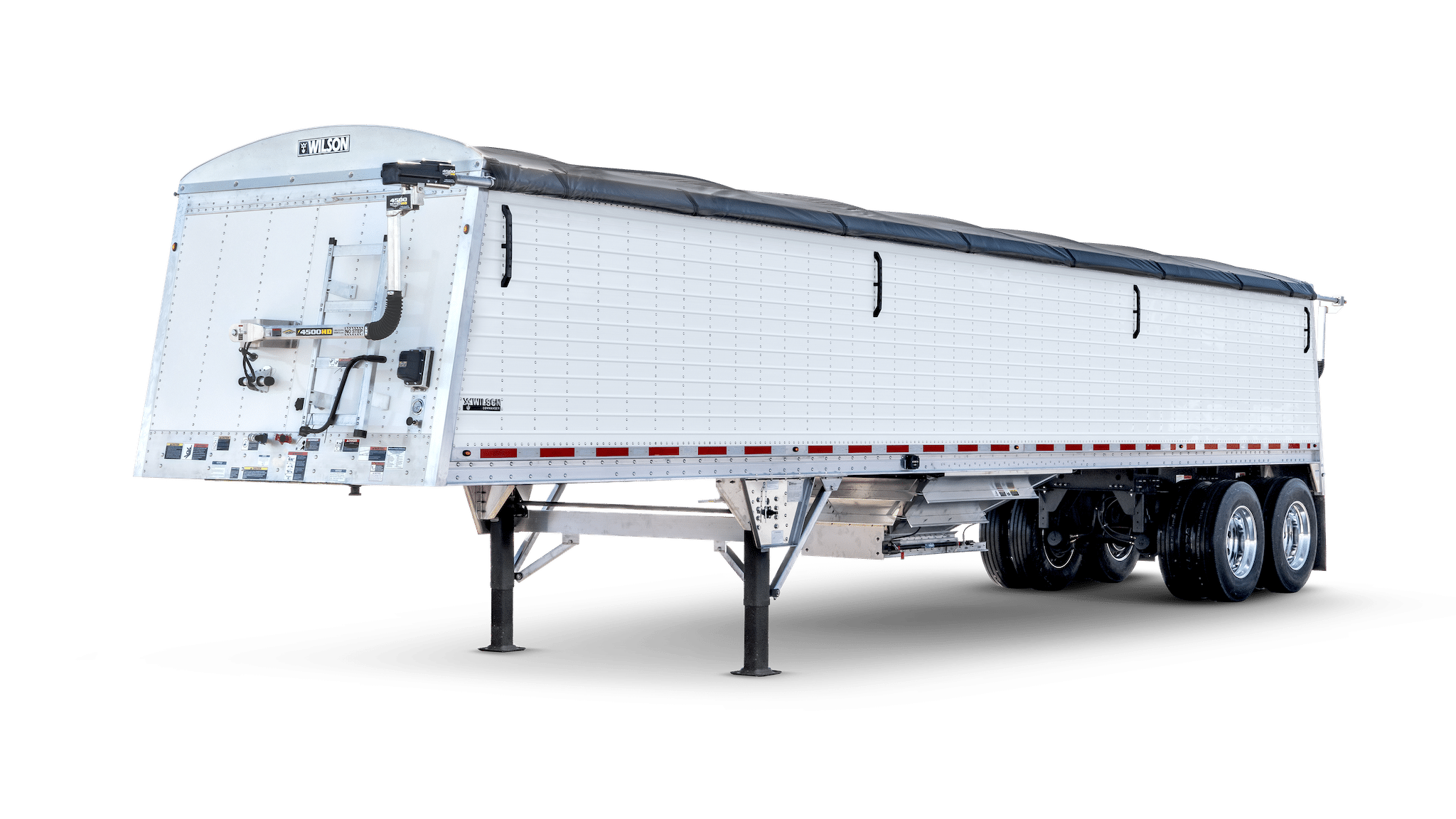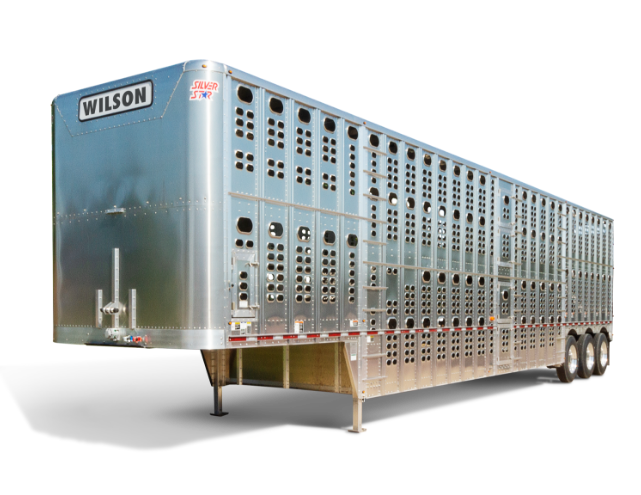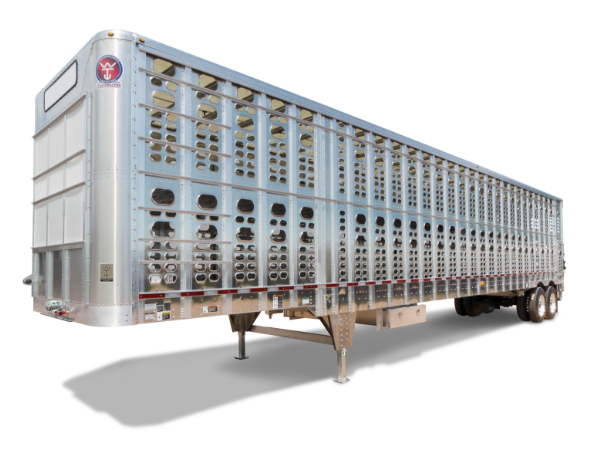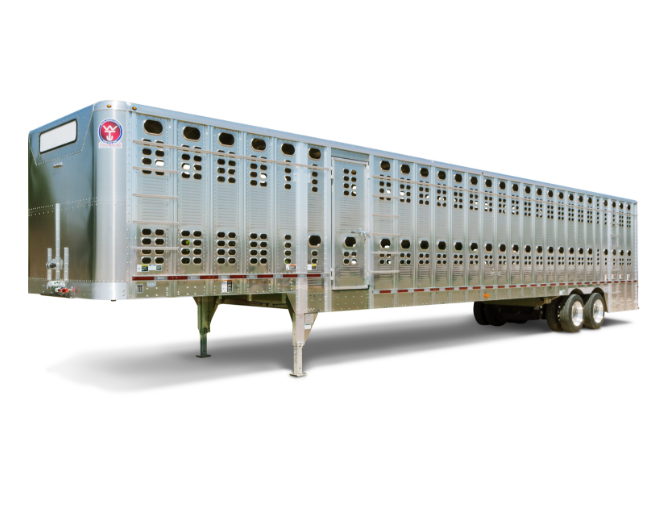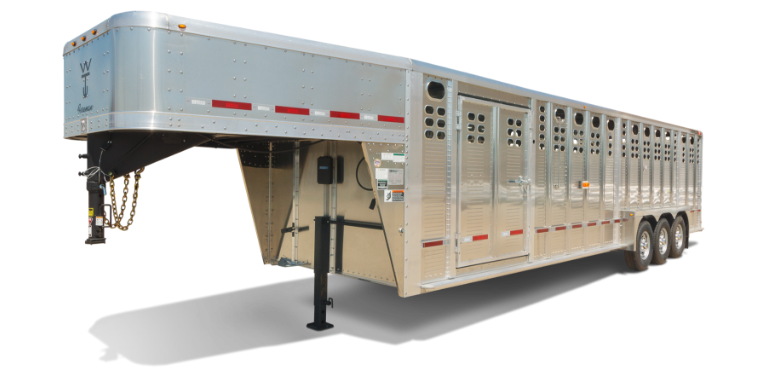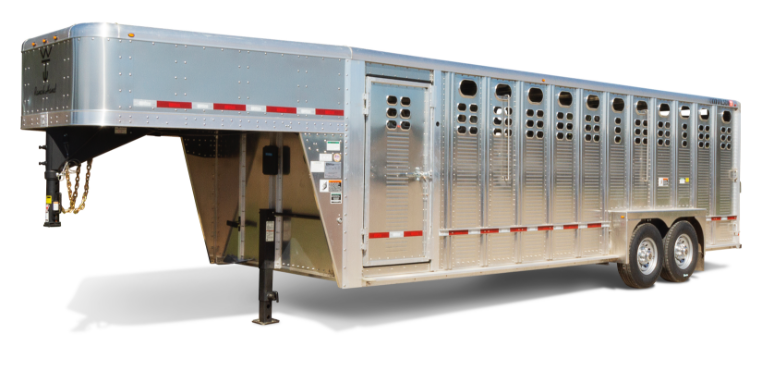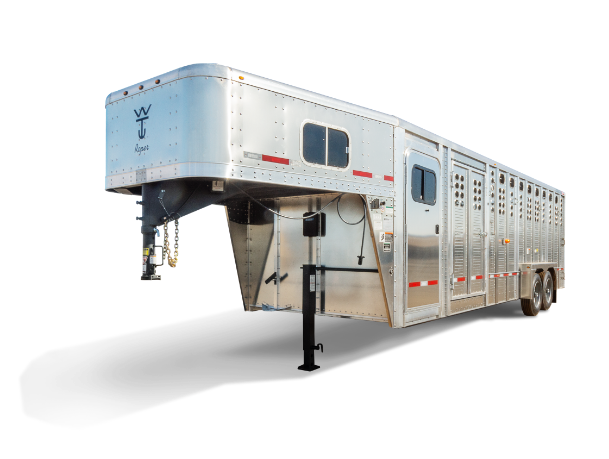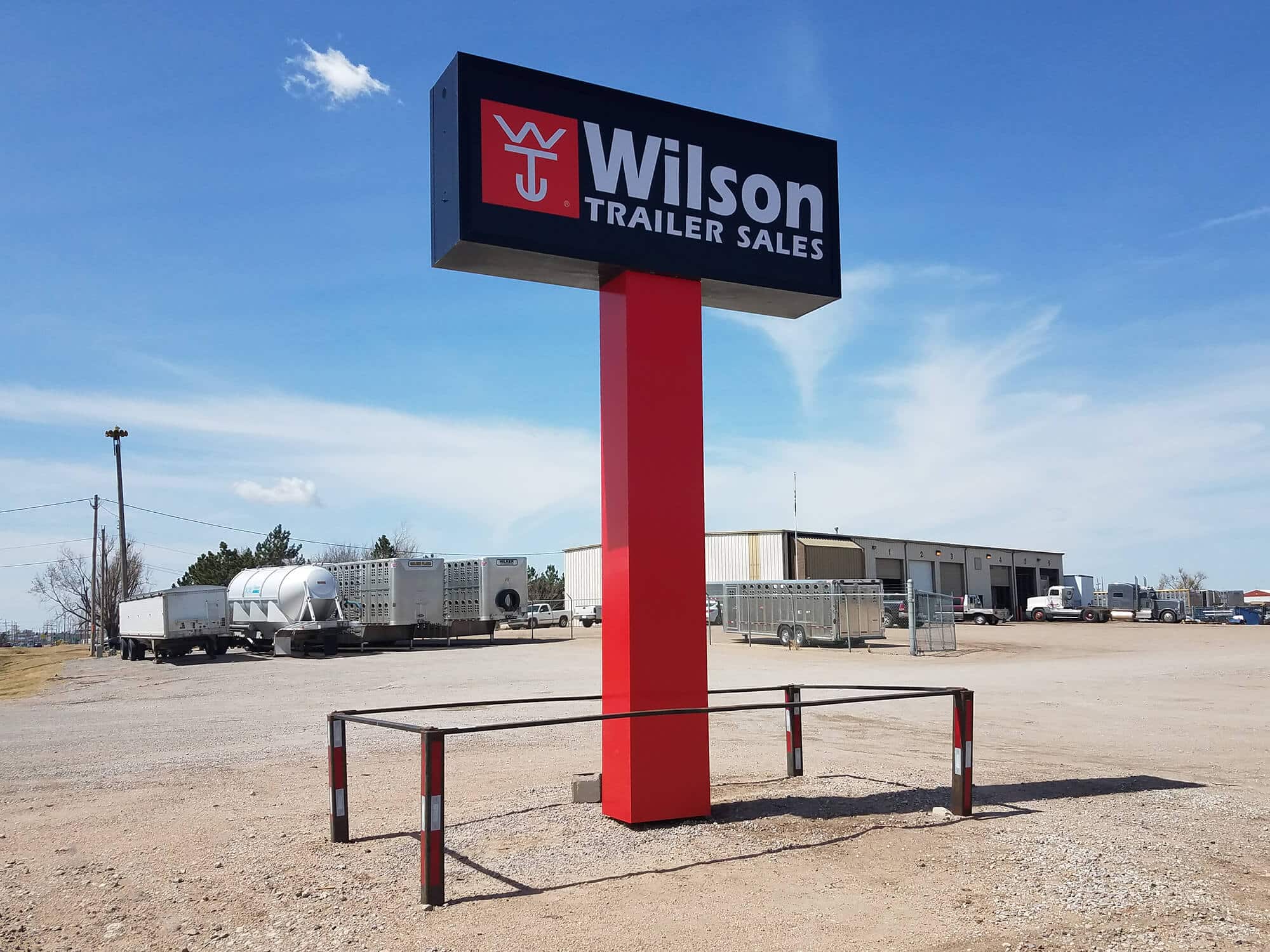Back in the day, Wilson Trailer’s downtown location on the hill used to overlook one of the busiest stockyards in the nation – It was a prime location for a trailer service center, especially livestock trailers. Today, with the stockyards long gone, the need to relocate the parts and service center to a location with better access was recognized and construction was finished in 2019 on a new addition to the Sioux City grain trailer manufacturing facility. The new location, on the company headquarters campus, has direct access off Interstate 29 and allows customers to drop off their trailers for service or pick up them up 24-hours a day. The new service and parts facility added a 16-bay, 27,000 sq. ft. service shop, which is home to the area’s only frame straightener. The new addition also added 22,000 sq. ft. of warehouse space to the grain trailer manufacturing facility and streamlined fabricated parts directly from production to the new service area.
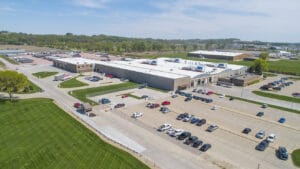
Construction began on a new 64,268 sq. ft. plant in Lennox, SD to allow production of gooseneck livestock trailers to be split out from the facility in Yankton. However, those plans abruptly changed with the passage of ethanol subsidies and farmers beginning to haul their own grain. Demand for grain trailers grew substantially, therefore it then became necessary to turn this facility into additional grain trailer production. In 2011, the facility was enlarged an additional 76,884 sq. ft. for a total of 141,252 sq. ft. of efficient production space. Today, Wilson grain trailers are produced in Lennox, SD, Sioux City, IA and Moberly, MO and are some of the most preferred, top-selling grain trailers in North America.
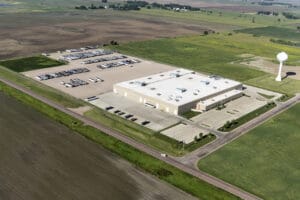
The concept of combination steel/aluminum and all aluminum flatbed/drop deck trailers had gained in popularity, so Wilson Trailer opened a 100,000 sq. ft facility in Moberly, MO to meet the demand. This building produces trailers known for their high-capacity ratings and long-lasting durability. The facility also handles additional grain trailer production during peak demand periods. Today, Wilson flatbed and drop deck trailers maintain a reputation, in a highly competitive industry, for being the most durable and longest lasting with the lowest operating cost.
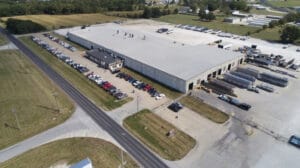
Livestock trailer sales continued to prosper, and Wilson Trailer made the decision to build a separate facility in Yankton, SD to produce livestock trailers. The 84,383 sq. ft. building was enlarged in 1998 to handle increased production of gooseneck livestock trailers an additional 53,000 sq. ft. With sales of Wilson’s livestock semi-trailers dominating the market and the growth of their popular gooseneck trailers, in 2015 it became necessary to enlarge the plant an additional 35,000 sq. ft. With a total 172,384 sq. ft. of production floor space, the Yankton plant now produces the flagships of today’s livestock trailer industry.
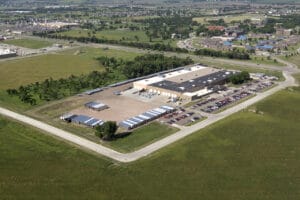
Wilson Persinger passed in May of 2010. Mr. Persinger led the company through many innovations and industry advancements. His 30+ years at the company’s helm advanced Wilson Trailer to be one of the top trailer producers in the country. Wilson’s sons, Bill and John have assumed the shared positions of Co-CEOs.
Wilson Trailer had already been using some aluminum components in the construction of their trailers, but with new extra-strength aluminum alloys Wilson was able to introduce the AL-100 and ADCL-100 all-aluminum livestock trailers in 1964. Specially designed and engineered extrusions and castings allowed Wilson to take full benefit of the weight advantages inherent in aluminum.
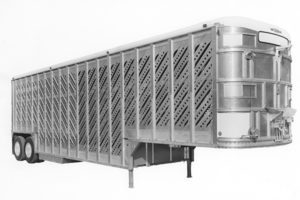
Back in 1890, hammering and shaping metal into components for his own brand of wagons and carts is how the ambitious Frank Wilson set about forming Wilson Trailer Company. 125 years later, Wilson Trailer is competing on a global market with transportation products well known for their design, performance, low maintenance costs and wise use of aluminum. Although proud of their heritage and longevity, Wilson Trailer continually looks for ways to improve so the company’s success continues for generations to come.
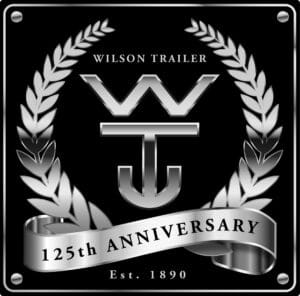
Through series of government subsidies and mandated consumption levels, production of corn-based ethanol rose dramatically and distillers grains, a byproduct of ethanol production, had become an abundant resource for livestock feeders. Wilson Trailer developed the Patriot self-unloading belt trailer to meet the need of transporting the distillers grains from the distillery to the feeder. The Patriot belt trailer proved to be the most popular trailer for this market.
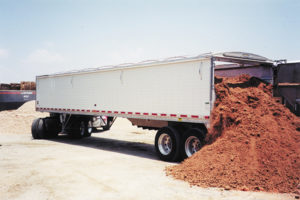
In 1996, Wilson developed and patented a revolutionary hopper trap opener called the RollerTrap or more commonly known as the “strap trap”. The trap opener, made of corrosion resistant aluminum and stainless steel, eliminates obstructions below the trap frame and the need for heavy gearboxes. The uncomplicated design uses two flexible straps to pull the door open and closed with minimal effort. A standard feature on every grain trailer, the RollerTrap has proven to be one of the industry’s more popular innovations.
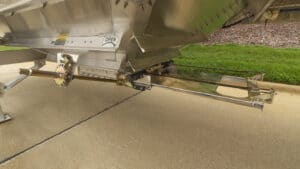
The eighties and nineties saw an increased use of personal pick-up trucks and the desire to haul it “myself.” In 1989, Wilson began to market the aluminum PSGN models to this demand. The gooseneck models have proven themselves as versatile, long-lasting values.
The grain trailer industry was introduced to the aluminum double wall hopper. Wilson’s Pacesetter model featured full-length one-piece side skins on the outside and the inside. Sidewall drain ports along the lower side rails and between each set of side posts allowed air to circulate in the sidewall cavity.
